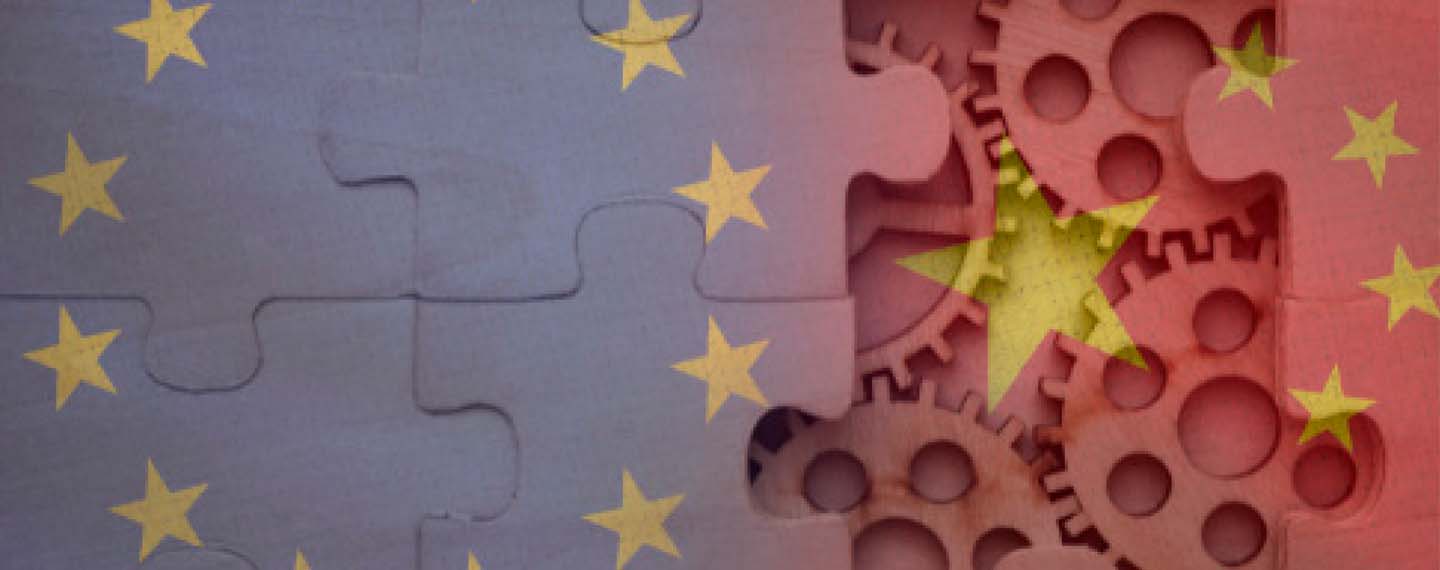The idea that Europe has grown dependent on China is now a common refrain, but just how is this notion understood in capitals across the continent?
For the eighth report since its inception in 2014, the European Think-tank Network on China (ETNC) brings together analysis on 18 countries plus the European Union to examine how dependencies on China are presented in European public and policy-level debates, and how the notion shapes policymaking in each case.
Indeed, the idea that Europe has grown dependent on China has become a common refrain across the continent. The chapters that follow provide substance, and in some cases nuance, to these discussions, contributing a much-needed, “bottom-up” perspective on an intensifying European debate.
A cross-cutting analysis of the chapters reveals that there is a broad diversity in the content and intensity of public debate and in the policy-level assessment and understanding of dependencies on China across Europe. In some countries, the issue is treated both as a significant concern in the public debate and a significant priority at the policymaking level. For others it is significant at one level but not the other, and in still other countries there is a limited, or even lacking discussion on this topic, both among the general public and in policymaking debates.
The concept of dependence is in many ways closely associated with Europe’s broader debate on building greater resilience, reinforcing sovereignty and striving for a degree of (open) strategic autonomy. These debates are not associated exclusively, or even primarily with China. In many ways they are representative of a broader internal reflection of how Europe relates to the process of globalization, and how it sees its place in the world.
In this context, managing relations with the United States, particularly as strategic rivalry between Washington and Beijing becomes ever more prevalent, is one primary concern. Another, more pressing concern for Europeans is dependencies on Russia, particularly considering Moscow’s war in Ukraine.
Much of the research and analysis done in this report preceded Russia’s invasion of its western neighbor, but the ensuing events are already restructuring how Europeans understand the notion of dependence and vulnerability. As such, Europe’s relations with China will necessarily be impacted, particularly as China positions itself relative to Europe’s shifting geopolitical context.
A robust body of work is being done by EU institutions to understand Europe’s dependencies and craft policies to address them at the macro level. While written independently, our report makes a qualitative complement to this ongoing work.
A striking observation from this analysis is that, beyond the EU institutions, surprisingly few states have made concerted efforts to assess their dependencies with any degree of depth. In only a quarter of countries observed has there been a significant level of public debate coupled with concerted policy-level action to both understand and address issues around dependence.
The ETNC brings together experts from 20 research institutes across Europe. The editing of this year’s report has been led by the French Institute of International Relations (Ifri), the Elcano Royal Institute and Mercator Institute for China Studies (MERICS).
See also:
- China’s Soft Power in Europe. Falling on Hard Times. ETNC, April 2021.
- Covid-19 and Europe-China Relations. A country level analysis. ETNC, April 2020.
- Europe in the Face of US-China Rivalry. ETNC, January 2020.
- Political values in Europe-China relations. ETNC, December 2018.
- Chinese Investment in Europe: A Country-Level Approach. ETNC, December 2017.


